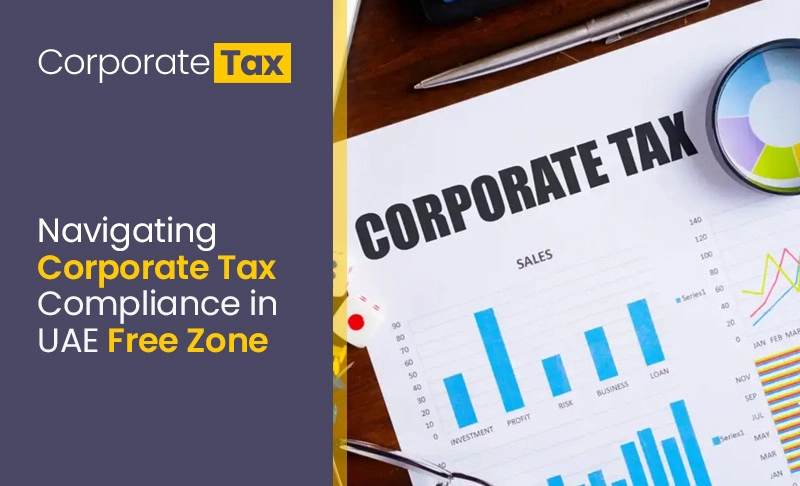The UAE’s introduction of corporate tax in 2023 marked a significant shift for companies working inside its free-zones, historically acknowledged for its tax-free advantages. As the UAE corporate tax regime evolves in 2025, expertise in the nuances of UAE Free Zone corporate tax and ensuring compliance has turned out to be critical for companies aiming to keep their competitive edge and benefit from available incentives.
Understanding UAE Free Zone Corporate Tax in 2025
The UAE corporate tax framework applies a 9% tax-rate on taxable income exceeding AED 375,000 for maximum companies. However, qualifying free-zone entities—called Qualifying Free Zone Persons (QFZPs)—can gain from a 0% corporate tax-rate on qualifying earnings, provided they meet unique standards mentioned by means of the Federal Tax Authority (FTA). These standards consist of working in the free-zone, undertaking government-described qualifying activities, keeping enough property and certified employees, and ensuring working prices meet regulatory requirements.
Non-qualifying income at no-cost area companies, inclusive of income derived from mainland UAE enterprise activities or exceeding certain thresholds, are subject to the same old 9% corporate tax-rate . If non-qualifying income surpasses 5% or AED 5 million of general income (whichever is lower), the complete income will become taxable at 9%, emphasizing the significance of cautious income structuring below the free-zone employer tax rules.
Corporate Tax Compliance UAE: Key Requirements
Free-zone companies need to sign in for corporate tax with the FTA within 3 months of incorporation or upon crossing the taxable income threshold. Annual tax returns need to be filed, detailing qualifying and non-qualifying income streams. Late registration or failure to conform draws penalties, inclusive of fines as much as AED 10,000.
Additionally, companies need to keep the right substance requirements, inclusive of physical presence, certified employees, and operational prices in the free-zone, to hold their preferential tax status. These UAE Free Zone tax hints are designed to align with global requirements inclusive of the OECD’s Base Erosion and Profit Shifting (BEPS) framework, ensuring transparency and stopping tax avoidance.
Strategic Approaches to Free Zone corporate tax Regulations
To navigate the evolving tax landscape, free-area companies should:
- Conduct a radical evaluation of income assets to differentiate qualifying from non-qualifying earnings.
- Ensure compliance with substance requirements by way of keeping enough property and employees in the free-zone.
- Register right away with the FTA and report correct tax returns annually.
- Leverage to be had from tax incentives inclusive of the Small Business Relief scheme, which gives 0% tax for companies with revenue as much as AED three million until the end of 2026.
- Engage corporate tax specialists to optimize tax positions and ensure adherence to complicated rules.
Conclusion
The UAE Free Zone corporate tax surroundings in 2025 presents both demanding situations and opportunities. While the introduction of corporate tax marks a departure from the conventional tax-free status of free-zones, qualifying entities can nevertheless gain from 0% tax costs by way of adhering to the UAE Free Zone tax guideline and compliance requirements. Businesses that proactively adapt to the brand-new corporate tax compliance UAE framework will guard their tax advantages, avoid from penalties, and position themselves for sustainable growth within the UAE’s dynamic financial landscape.
FAQs
Is corporate tax applicable in UAE Free Zones in 2025?
Yes, but qualifying Free Zone entities may still benefit from a 0% corporate tax rate if conditions are met.
What are the compliance requirements for Free Zone companies?
Companies must register, file annual returns, and maintain audited financial records.
Can Free Zone companies do business with the mainland and stay tax-exempt?
No, income from mainland activities may be subject to the standard 9% corporate tax rate.
When is the corporate tax filing deadline in UAE Free Zones?
Typically within 9 months after the end of the financial year, unless otherwise specified.





